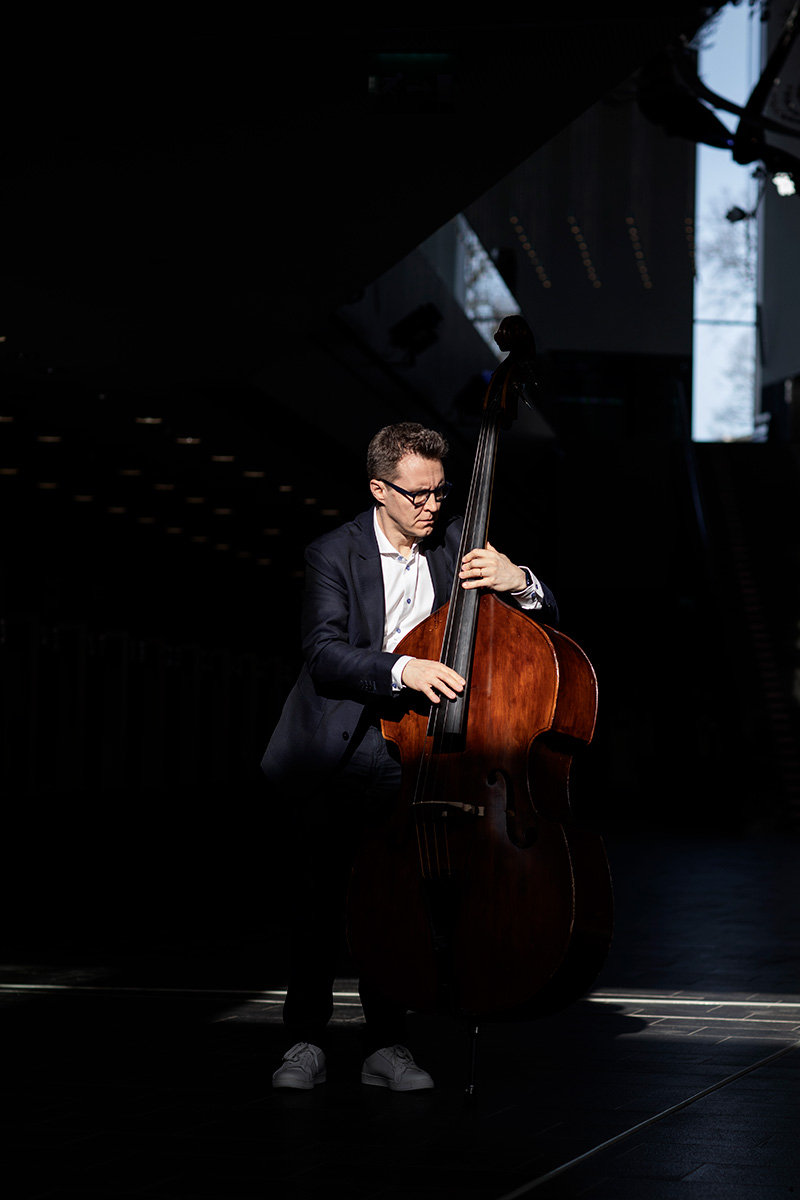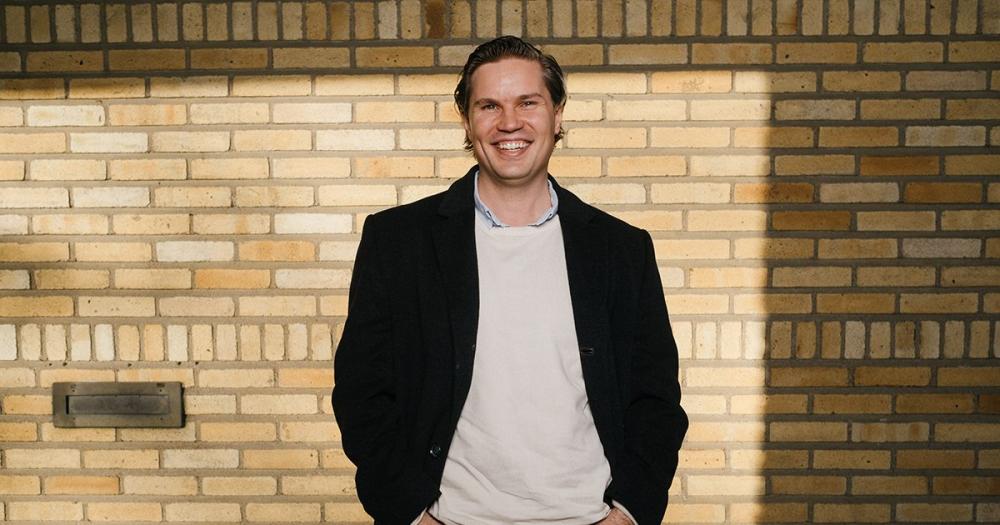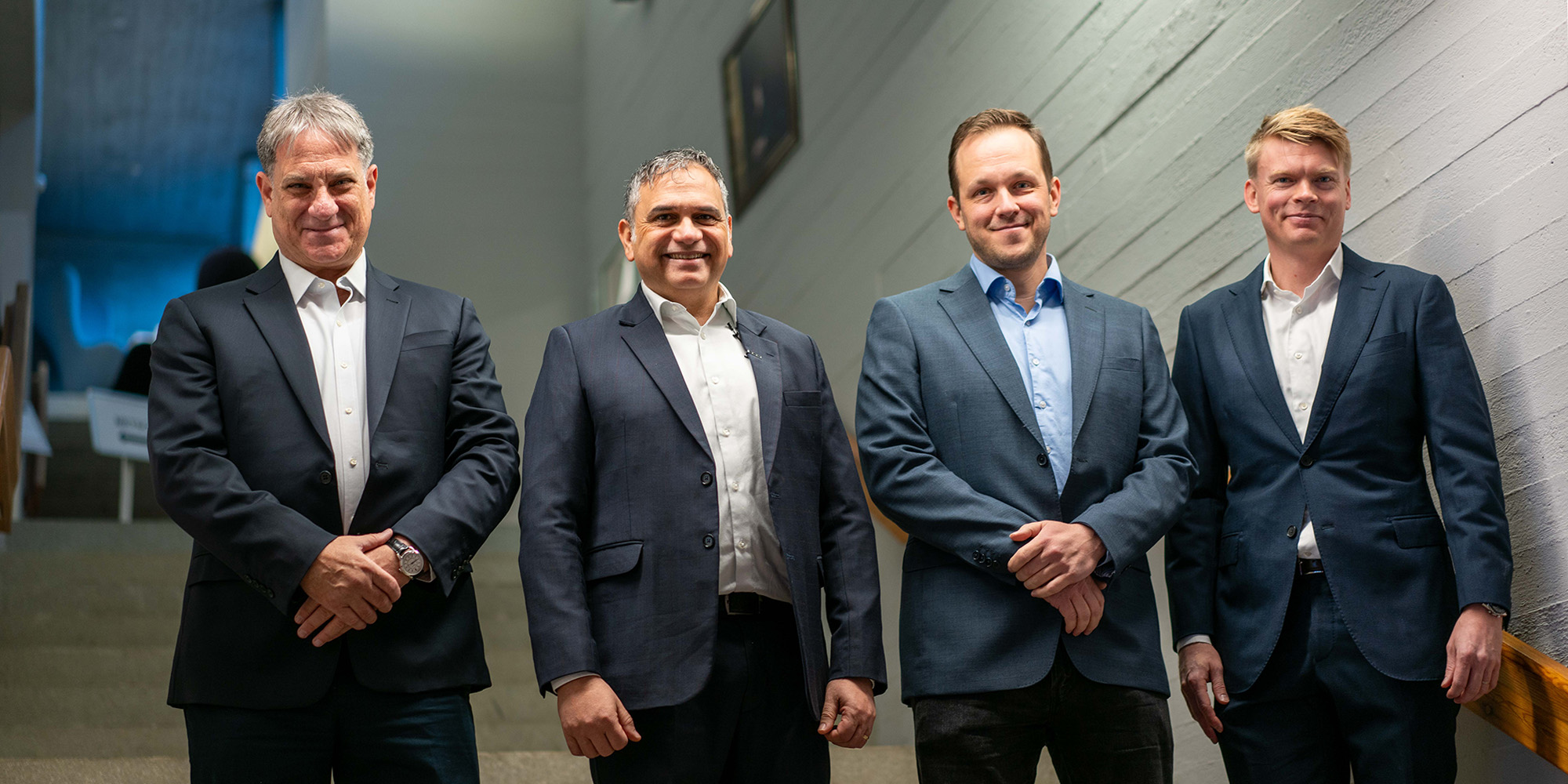When Patrick Furu is working remotely and his thoughts get stuck, he grabs his double bass for a while. Playing for just a couple of minutes usually clears up his thoughts, and the problem he's been thinking of can be solved in an instant.
Music has always been a big part of Furu's life. First, his mother enrolled him in guitar lessons, and then he became interested in the piano.
In middle school, he started playing in a band. When the band needed a bass player, Furu learned to play the double bass. In high school, he familiarized himself with the clarinet and saxophone.
Now Furu plays the double bass in various jazz ensembles, which include professional musicians and also his wife.
"In a world where there are so many stimuli
and our everyday life is so fragmented,
music offers you moments of concentration."
"In a world where there are so many stimuli and our everyday life is so fragmented, music offers you moments of concentration. You get absorbed in it and forget everything else," says Furu.
For him, music is a hobby that provides a counterbalance to his work at Aalto EE. At work, he designs training solutions aimed at the top management of companies, among other responsibilities.
But music can also be seen in his work, as leaders can learn many things from jazz musicians.
Learn from "intelligent failures"
Furu has long experience in the field of management training and leadership development as a researcher and trainer.
In Aalto EE's programs, he teaches jazz strategy. A jazz band attends these sessions to illustrate how it operates to the participants.
As a researcher, Furu has compared, for example, the activities of symphony and jazz orchestras.
In a symphony orchestra, each player has a well-defined task. The orchestra is led by a conductor who – at least when thinking in black and white – tells what others have to do. This all results in "standardized, great music", which, however, has no chance of changing.

In a jazz band, every member is heard and gets to shine. "It's clear that everyone gets to play solo."
At least in an ideal situation, a jazz band works with a completely different logic. The players listen to each other and react to what they hear. They boldly try out new things.
If something doesn't work out, you can learn from it. Both in jazz and in the business world, "intelligent failures" lead to new insights.
Each member of the band is heard and has a chance to shine. "In a jazz band, it's clear that everyone gets to play a solo."
The composition does not have to consist of top individuals only. For example, the tradition of jam sessions that often follow jazz gigs is that anyone from the audience can participate in the session. The end result – what will be played and with whom – is impossible to predict.
Listen to your people
When the world changes rapidly, service organizations, for example, are required to have the same agility and radical adaptability as jazz bands.
This is the only way to create something completely new: renewal is not only about passively adapting to change, but proactively developing something new.
Renewal is not only about passively
adapting to change, but proactively
developing something new.
How could utilizing the jazz strategy look like in a company?
In his trainings, Furu sees how leaders understand the importance of listening. When people are listened to, their ideas are heard. Hearing the people will nurture creativity, psychological safety and an atmosphere that supports others.
One can build on the funniest ideas with the "yes, and..." idea familiar from improvisational theater, as different kinds of people are allowed, and they dare, to express their opinions.
Traditionally, companies have thought that the strategy can only be implemented once everything has been defined, the process is clear, and the roles have been carefully considered.
An incomplete plan can feel painful. However, in today's world, you must get going even before you feel comfortable. If you’re not capable of doing so, you have lost the game.
See what Miles Davis and Steve Jobs did
Furu began to see the connection between jazz, leadership, and strategy work during his studies in the 1990s.
On one course, the students needed to choose an organization they were familiar with and analyze it.
"I chose a band."
It was a pop and rock band that Furu had been asked to join as a player and manager. The project made him realize that a band is an organization made up not only of players and singers but also of all the other people around.

A band is an organization. "It involves leadership, communication, and organizing things," says Patrick Furu.
"It involves leadership, communication, and organizing things."
All this can be seen particularly well in jazz bands. Furu has analyzed, for example, the leadership of jazz musician and composer Miles Davis. Davis reformed the entire jazz genre during his career - and more than once.
Furu compares Davis to former Apple CEO Steve Jobs. They weren't necessarily the most pleasant individuals to work with, but they both managed to reform themselves and their organizations.
"When you give professionals - be they musicians or coders or anything else - a huge amount of responsibility and show that you trust them, you can build teams that create something completely new and revolutionary.”






















